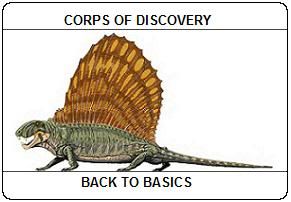Satans Mark/Cashless
See other Satans Mark/Cashless Articles
Title: The Cloud Will Kill the OS: a Syllabus
Source:
wired
URL Source: http://www.wired.com/cloudline/2011/11/the-cloud-will-kill-the-os/
Published: Nov 21, 2011
Author: Jon Stokes
Post Date: 2011-11-21 23:37:38 by A K A Stone
Keywords: None
Views: 3473
Comments: 4
One of the things I’ve been thinking a lot about since starting Cloudline is this notion that the cloud will transform the traditional IT department from a server-centric consumer and deployer of resources into a more application- and service-centric creator of resources. In a recent post, I referred to this shift as the “appification” of enterprise IT, and I summed it up as follows:
Viewing cloud through the lens of user-driven provisioning sheds light on two themes that I’ve seen come up again and again in multiple presentations at the Cloud Expo: 1) cloud adoption is currently easiest for and happening most rapidly in the small business (SMB) segment, and 2) while the enterprise is still in the exploratory phase with cloud, cloud computing will ultimately transform the IT department into a collection of devops teams that create and maintain a collection of “apps” and services, and it will transform the enterprise user experience into something very much like the app- and service-centric experience that consumers and SMBs now get from the web and from their smartphones…
Ultimately, there can be no “adoption” of cloud by enterprise IT. Instead, the cloud will effectively replace corporate IT as means by which users select and provision technologies that let them do new things and do existing things in new ways. There will still be a corporate IT budget, of course, but it’ll be spent on a combination of cloud technology and on app and service developers who push out new features in response to both user requests and the cloud’s evolving maintenance/administration needs.
I’ve recently discovered that I’m at least two years behind Cisco’s James Urquhart, who has been preaching something very similar to this since at least 2009. Starting with his most recent post at GigaOm, I spent much of the day following the link trail and going back through his and others’ previous work on this topic, as well as the work of others that he links. Below is a kind of syllabus of what I’ve read that directly applies here, and it’s material that I’m thinking with and about as I try to understand the shift that’s taking place in the way that datacenter resources are organized and presented as functional abstractions to users and developers.
Cloud computing and the big rethink, Part 1, Part 2, Part 3, Part 4, Part 5 IT operations in a cloudy world Understanding the cloud and ‘devops’–Part 1 Incomplete Thought: Virtual Machines Are the Problem, Not the Solution Flying Cars & Why The Hypervisor Is A Ride-On Lawnmower In Comparison
If I could boil all of the above down into on idea, it would go something like this: the cloud lets us disaggregate traditional, monolithic technological entities into discrete, independent units that can then be dynamically mixed and matched in a way that lets that each entity get exactly what it needs, when it needs it directly from the hardware with minimal overhead.
To put this in more concrete terms, the OS is the main monolith that the cloud will eventually break up into multiple discrete units of functionality. When an app gets deployed, instead of a human taking the time to wrap it in OS (where it won’t even use most of the baggage the OS brings along) and deploy it to a waiting hypervisor via a VM, some type of automation software selects the necessary functional units, bundles them together, and wraps this bundle around the app as a container so that the app can be deployed to a platform and connected to the resources it needs. In this model, the OS and VM are cut out entirely, and they’re replaced by lightweight, app-specific containers that run atop a very thin hypervisor.
The one thing I would add to the picture painted in the links above is that some of these discrete container/app combos handle essential services, so that all apps (user-facing or internal) end up talking to each other as peers and relying on one another for the basic functionality that makes the whole system run. So these cloud apps are sort of like Unix daemons or Windows services, in a very loose sense. In saying this, I’m thinking specifically about the way that Heroku approaches its own platform as collection of “apps” each with different owners and published interfaces, and also the way that Bezos (per Steve Yegge’s famous platform rant) demanded that Amazon approach its datacenter. With both Amazon and Heroku, the emphasis is on isolating functionality into discrete units, and then publishing interfaces that are the only access to those units so that peers on the platform can talk to each other and hand off tasks.
At any rate, this is a trend that actually deserves book-length treatment, because it’s going to play out in a second, post-virtualization wave of cloud innovation that will give us a datacenter and an IT department that are very different from what we have now. Right now, virtualization has given us a state of cloud evolution that’s sort of like when land animals learned to swim and started hanging out in the water a lot; the next step is that the legs turn into fins, and when that happens the OS and VM will disappear.
Post Comment Private Reply Ignore Thread
Top • Page Up • Full Thread • Page Down • Bottom/Latest
#1. To: coral snake (#0)
fyi
Why don't you put this "Cloud" crap under the Satan's Mark/Cashless catagory where it belongs because "Cloud" Computing is simply the latest Illuminati brainwash "next big thing" buzzword for EXCTLY THAT!!!
ok
Uh huh..let me know when major corporations start running their payroll processing on it.
#2. To: A K A Stone (#1)
#3. To: Coral Snake (#2)
#4. To: A K A Stone (#0)
the cloud lets us disaggregate traditional, monolithic technological entities into discrete, independent units that can then be dynamically mixed and matched in a way that lets that each entity get exactly what it needs, when it needs it directly from the hardware with minimal overhead.
Top • Page Up • Full Thread • Page Down • Bottom/Latest
[Home] [Headlines] [Latest Articles] [Latest Comments] [Post] [Mail] [Sign-in] [Setup] [Help] [Register]


